Profile
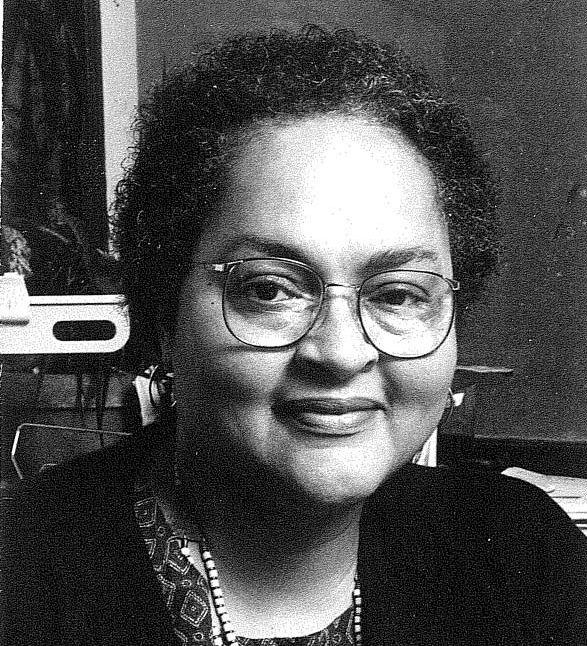
Harriette Pipes McAdoo
Birth:
1940
Death:
2009
Training Location(s):
PhD, University of Michigan (1970)
MA, Michigan State University (1963)
BA, Michigan State University (1961)
Primary Affiliation(s):
Michigan State University (1991-2009)
Howard University (1970-1991)
Other Media:
Media Links
Michigan State University: MSU's Iconic Professors
John L. and Harriette P. McAdoo Dissertation Award
Professional Pages
Obituaries and Tributes
National Council on Family Relations (NCFR)
Obituary in the Lansing State Journal
Interviews
Society for Research in Child Development (SRCD) Oral History Interview
Career Focus:
Black children and families, racial attitudes and self-concept, parent-child interactions
Biography
Harriette Pipes McAdoo was born in Fort Valley, Georgia to a family with a long history of obtaining advanced education since the period of slavery in the US. She grew up alongside a younger brother and sister. Her parents, William Harrison Pipes and Anne Howard Russel Pipes, were both educators at several Southern US colleges. As such, they regularly moved, beginning in Baton Rouge, Louisiana, and moving to Little Rock, Arkansas where she spent most of her childhood. They then moved to Detroit, Michigan, before finally settling in East Lansing, Michigan. Despite living in the era of racial segregation in the Deep South, her father was a renowned scholar as the first African-American faculty member of the Michigan State University and the president of Alcorn University.
McAdoo followed in her family’s footsteps of academic excellence, receiving her BA and MA from Michigan State University in 1961 and 1970, respectively. However, institutional racism in medical, educational, and occupational contexts still impacted the lives of McAdoo and her family. For example, her mother lost three children due to insufficient care for an undiagnosed medical condition. She was also forced into domestic service for three years despite her MA degree, as there were no other employment opportunities for the Black community.
McAdoo taught at Milan and Ypsilanti High School from 1965 to 1967 and developed the first special education classroom at the latter, but she then realized her passion was not in teaching. She instead enrolled in the University of Michigan’s PhD program in Educational Psychology and Child Development with her husband, John Lewis McAdoo, whom she met during her first year of graduate studies. She later completed postdoctoral work at Harvard as well as the University of Michigan.
McAdoo’s PhD dissertation investigated the impact of a racially integrated environment on children from all-Black communities. This project revealed equally-distributed self-concepts in both Black and White children and famously challenged the myth of lower self-esteem in Black youth. According to her findings, children who were raised in all-Black communities exhibited higher self-esteem. Yet, Black children continued to prefer White over Black dolls, signifying the continued influence of systemic White supremacy despite community integration.
Along with John, Harriette had always adopted activism in her teaching, research and writing. They participated in the Women’s and Black consciousness movements from the 1960s and 1970s. The two led protests against the lack of Black enrolment at the University of Michigan, resulting in John’s placement on the faculty admissions committee for the College of Education, and increased Black doctoral students’ enrolment in the university’s Psychology Department. A plethora of similar protests in the 1960s’ saw a surge of newly-appointed young Black faculty members with training from historically Black and non-Ivy League colleges. Following a severe in-house conflict between the new and old faculty members, the McAdoos began professorships at Howard University. During this time, Harriette McAdoo was also a visiting professor at several US educational institutions, including the University of Washington, Smith College, George Warren Brown, Michigan State University, and the University of Minnesota. Over the course of her professorship, McAdoo had also mentored hundreds of students and colleagues.
At Howard University, McAdoo replicated her doctoral dissertation and also received a large grant from the Office of Education to educate nationwide public school teachers on research methodology. She also made international contributions towards research on Black children and families across the US, Ghana, Zimbabwe and Kenya. Most prominently, she received a large faculty grant to study Kenyan women’s coping strategies in generational moves from rural to urban settings following a male-dominated upbringing. Additionally, inspired by her own middle-class upbringing, she and her husband kickstarted the Family Life Project in the 1970s with a goal of dispelling White family researchers’ prevalent stereotypes about the dysfunctional, impoverished Black family with histories of prison and substance abuse. Together, they systematically studied parent-child interactions in dual-parent, middle-class Black families in Washington, DC and outlined their positive strengths and strategies. One example of this field of research was her editorship of the well-known four-volume book Black Families, which continues to be the most comprehensive interdisciplinary assessment of Black families in terms of depth and range of coverage.
McAdoo’s contributions to Black Psychology were plentiful and did not go unnoticed. In 1978, The Association of Black Psychologists named her as Outstanding Researcher of the Year. From 1979 to 1981, she was appointed by US President Jimmy Carter to the planning group for the White House Conference on Families’ National Advisory Council. Here, she chaired two sessions and listened to families across the nation describe their hardships. She used this information to write several grants to support studies on government impacts on family programs. From 1984 to 1985, she was appointed as Dean of the School of Social work in the twenty one years spent teaching at Howard University. McAdoo left Howard in 1991 to begin a faculty position at Michigan State University, and was named Distinguished Professor in 1996. Additionally, she has published several books and contributed to both National Council on Family Relations (NCFR) journals, and was elected to the Board of Directors of the council’s Ethnic Minority Section. In 1982, she was the first recipient of NCFR’s Marie Peters Award. She was appointed president of the NCFR in 1994, and in 2004 received the Ernest Burgess Award - the council’s highest honour.
McAdoo passed away in 2009. She is survived by her four children. She is remembered as a strong mentor, passionate activist, and renowned researcher. Her excellence followed her everywhere she went, even after death. In 2018, the NCFR enacted the first John L. and Harriette P. McAdoo Dissertation Award. This honour is given to doctoral students who complete a dissertation issues impacting ethnic minority families, forever cementing the memories McAdoo’s lifelong scholarship dedicated to advancing the comprehension of Black family experiences.
By Lucy Xie (2020)
To cite this article, see Credits
Selected Works
By Harriette McAdoo
Alexander, K. L., Entwisle, D. R., Blyth, D. A., & McAdoo, H. P. (1988). Achievement in the first 2 years of school: Patterns and processes. Monographs of the Society for Research in Child Development, 53(2), 157.
Luster, T., & McAdoo, H. P. (1994). Factors related to the achievement and adjustment of young African American children. Child Development, 65(4), 1080-1094.
Luster, T., & McAdoo, H. (1996). Family and child influences on educational attainment: a secondary analysis of the high/scope Perry Preschool data. Developmental Psychology, 32(1), 26.
McAdoo, H. P. (1978). Factors related to stability in upwardly mobile black families. Journal of Marriage and the Family, 40(4), 761-776.
McAdoo, H. P. (1993). Family Ethnicity: Strength in Diversity. Newbury Park, CA: Sage.
McAdoo, H. P. (2002).Black Children: Social, Educational, and Parental Environments (6th ed). Thousand Oaks, CA: Sage.
McAdoo, H. P. (2007).Black Families (4th ed.). Thousand Oaks, CA: Sage.
Nwadiora, E., & McAdoo, H. (1996). Acculturative stress among Amerasian refugees: Gender and racial differences. Adolescence, 31(122), 477.
About Harriette McAdoo
Dodson, J. E. (2007). Transforming Research & Academic Thinking, Harriette Pipes McAdoo (1940-2009): An Intellectual Biography. In R. George (ed.), The Wiley-Blackwell Encyclopedia of Sociology, 2nd Ed. Hoboken: Wiley-Blackwell.
Miller, J. R. (2011). Harriette Pipes McAdoo (1940–2009). American Psychologist, 66(2), 145.
Williams, R. L. (2008). History of the Association of Black Psychologists: Profiles of outstanding Black psychologists (pp. 335-342). Bloomington: AuthorHouse.
Photo Gallery
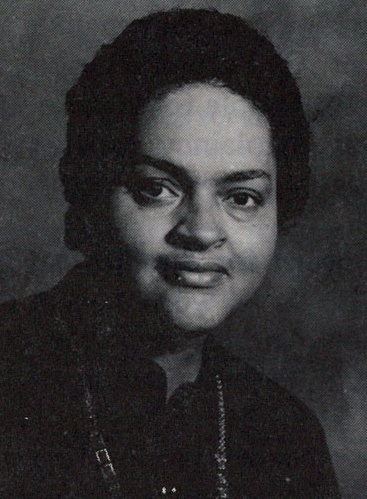
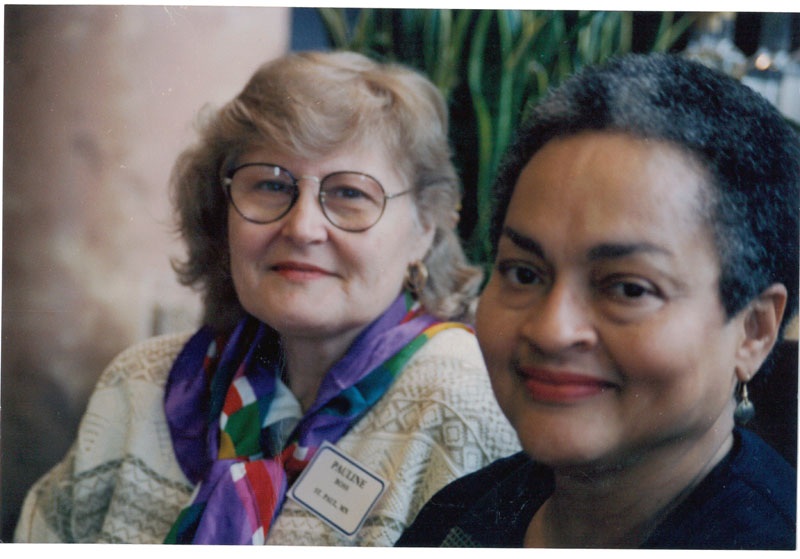
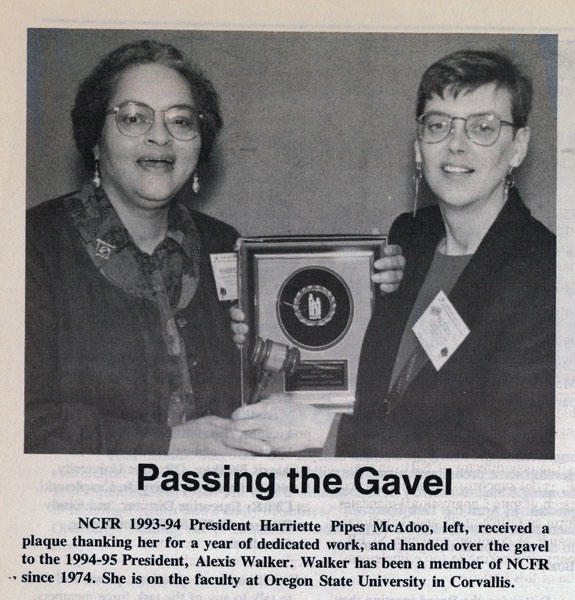
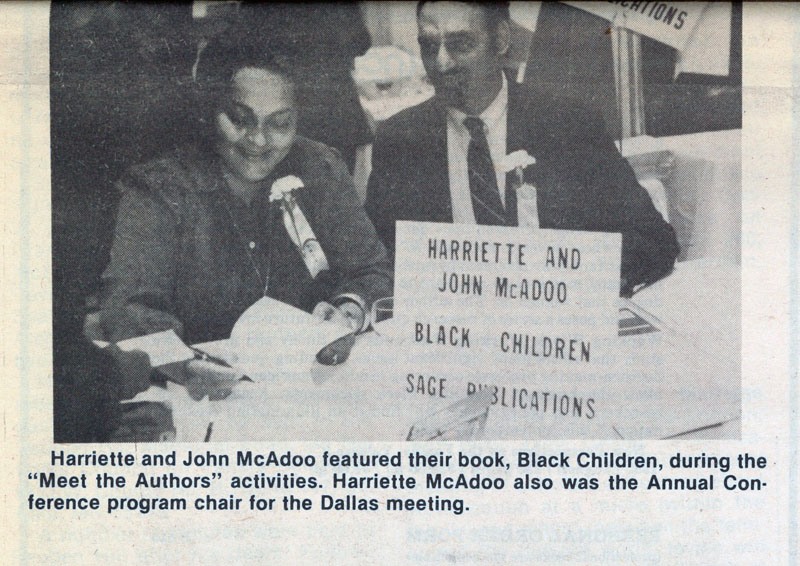

Harriette Pipes McAdoo
Birth:
1940
Death:
2009
Training Location(s):
PhD, University of Michigan (1970)
MA, Michigan State University (1963)
BA, Michigan State University (1961)
Primary Affiliation(s):
Michigan State University (1991-2009)
Howard University (1970-1991)
Other Media:
Media Links
Michigan State University: MSU's Iconic Professors
John L. and Harriette P. McAdoo Dissertation Award
Professional Pages
Obituaries and Tributes
National Council on Family Relations (NCFR)
Obituary in the Lansing State Journal
Interviews
Society for Research in Child Development (SRCD) Oral History Interview
Career Focus:
Black children and families, racial attitudes and self-concept, parent-child interactions
Biography
Harriette Pipes McAdoo was born in Fort Valley, Georgia to a family with a long history of obtaining advanced education since the period of slavery in the US. She grew up alongside a younger brother and sister. Her parents, William Harrison Pipes and Anne Howard Russel Pipes, were both educators at several Southern US colleges. As such, they regularly moved, beginning in Baton Rouge, Louisiana, and moving to Little Rock, Arkansas where she spent most of her childhood. They then moved to Detroit, Michigan, before finally settling in East Lansing, Michigan. Despite living in the era of racial segregation in the Deep South, her father was a renowned scholar as the first African-American faculty member of the Michigan State University and the president of Alcorn University.
McAdoo followed in her family’s footsteps of academic excellence, receiving her BA and MA from Michigan State University in 1961 and 1970, respectively. However, institutional racism in medical, educational, and occupational contexts still impacted the lives of McAdoo and her family. For example, her mother lost three children due to insufficient care for an undiagnosed medical condition. She was also forced into domestic service for three years despite her MA degree, as there were no other employment opportunities for the Black community.
McAdoo taught at Milan and Ypsilanti High School from 1965 to 1967 and developed the first special education classroom at the latter, but she then realized her passion was not in teaching. She instead enrolled in the University of Michigan’s PhD program in Educational Psychology and Child Development with her husband, John Lewis McAdoo, whom she met during her first year of graduate studies. She later completed postdoctoral work at Harvard as well as the University of Michigan.
McAdoo’s PhD dissertation investigated the impact of a racially integrated environment on children from all-Black communities. This project revealed equally-distributed self-concepts in both Black and White children and famously challenged the myth of lower self-esteem in Black youth. According to her findings, children who were raised in all-Black communities exhibited higher self-esteem. Yet, Black children continued to prefer White over Black dolls, signifying the continued influence of systemic White supremacy despite community integration.
Along with John, Harriette had always adopted activism in her teaching, research and writing. They participated in the Women’s and Black consciousness movements from the 1960s and 1970s. The two led protests against the lack of Black enrolment at the University of Michigan, resulting in John’s placement on the faculty admissions committee for the College of Education, and increased Black doctoral students’ enrolment in the university’s Psychology Department. A plethora of similar protests in the 1960s’ saw a surge of newly-appointed young Black faculty members with training from historically Black and non-Ivy League colleges. Following a severe in-house conflict between the new and old faculty members, the McAdoos began professorships at Howard University. During this time, Harriette McAdoo was also a visiting professor at several US educational institutions, including the University of Washington, Smith College, George Warren Brown, Michigan State University, and the University of Minnesota. Over the course of her professorship, McAdoo had also mentored hundreds of students and colleagues.
At Howard University, McAdoo replicated her doctoral dissertation and also received a large grant from the Office of Education to educate nationwide public school teachers on research methodology. She also made international contributions towards research on Black children and families across the US, Ghana, Zimbabwe and Kenya. Most prominently, she received a large faculty grant to study Kenyan women’s coping strategies in generational moves from rural to urban settings following a male-dominated upbringing. Additionally, inspired by her own middle-class upbringing, she and her husband kickstarted the Family Life Project in the 1970s with a goal of dispelling White family researchers’ prevalent stereotypes about the dysfunctional, impoverished Black family with histories of prison and substance abuse. Together, they systematically studied parent-child interactions in dual-parent, middle-class Black families in Washington, DC and outlined their positive strengths and strategies. One example of this field of research was her editorship of the well-known four-volume book Black Families, which continues to be the most comprehensive interdisciplinary assessment of Black families in terms of depth and range of coverage.
McAdoo’s contributions to Black Psychology were plentiful and did not go unnoticed. In 1978, The Association of Black Psychologists named her as Outstanding Researcher of the Year. From 1979 to 1981, she was appointed by US President Jimmy Carter to the planning group for the White House Conference on Families’ National Advisory Council. Here, she chaired two sessions and listened to families across the nation describe their hardships. She used this information to write several grants to support studies on government impacts on family programs. From 1984 to 1985, she was appointed as Dean of the School of Social work in the twenty one years spent teaching at Howard University. McAdoo left Howard in 1991 to begin a faculty position at Michigan State University, and was named Distinguished Professor in 1996. Additionally, she has published several books and contributed to both National Council on Family Relations (NCFR) journals, and was elected to the Board of Directors of the council’s Ethnic Minority Section. In 1982, she was the first recipient of NCFR’s Marie Peters Award. She was appointed president of the NCFR in 1994, and in 2004 received the Ernest Burgess Award - the council’s highest honour.
McAdoo passed away in 2009. She is survived by her four children. She is remembered as a strong mentor, passionate activist, and renowned researcher. Her excellence followed her everywhere she went, even after death. In 2018, the NCFR enacted the first John L. and Harriette P. McAdoo Dissertation Award. This honour is given to doctoral students who complete a dissertation issues impacting ethnic minority families, forever cementing the memories McAdoo’s lifelong scholarship dedicated to advancing the comprehension of Black family experiences.
By Lucy Xie (2020)
To cite this article, see Credits
Selected Works
By Harriette McAdoo
Alexander, K. L., Entwisle, D. R., Blyth, D. A., & McAdoo, H. P. (1988). Achievement in the first 2 years of school: Patterns and processes. Monographs of the Society for Research in Child Development, 53(2), 157.
Luster, T., & McAdoo, H. P. (1994). Factors related to the achievement and adjustment of young African American children. Child Development, 65(4), 1080-1094.
Luster, T., & McAdoo, H. (1996). Family and child influences on educational attainment: a secondary analysis of the high/scope Perry Preschool data. Developmental Psychology, 32(1), 26.
McAdoo, H. P. (1978). Factors related to stability in upwardly mobile black families. Journal of Marriage and the Family, 40(4), 761-776.
McAdoo, H. P. (1993). Family Ethnicity: Strength in Diversity. Newbury Park, CA: Sage.
McAdoo, H. P. (2002).Black Children: Social, Educational, and Parental Environments (6th ed). Thousand Oaks, CA: Sage.
McAdoo, H. P. (2007).Black Families (4th ed.). Thousand Oaks, CA: Sage.
Nwadiora, E., & McAdoo, H. (1996). Acculturative stress among Amerasian refugees: Gender and racial differences. Adolescence, 31(122), 477.
About Harriette McAdoo
Dodson, J. E. (2007). Transforming Research & Academic Thinking, Harriette Pipes McAdoo (1940-2009): An Intellectual Biography. In R. George (ed.), The Wiley-Blackwell Encyclopedia of Sociology, 2nd Ed. Hoboken: Wiley-Blackwell.
Miller, J. R. (2011). Harriette Pipes McAdoo (1940–2009). American Psychologist, 66(2), 145.
Williams, R. L. (2008). History of the Association of Black Psychologists: Profiles of outstanding Black psychologists (pp. 335-342). Bloomington: AuthorHouse.




